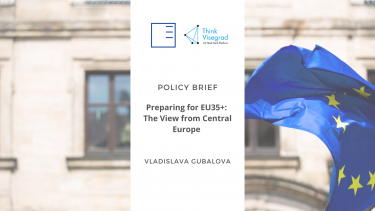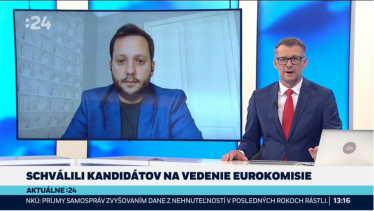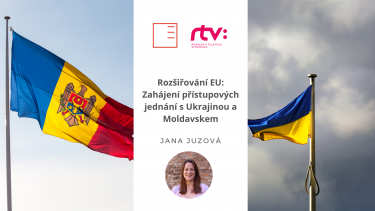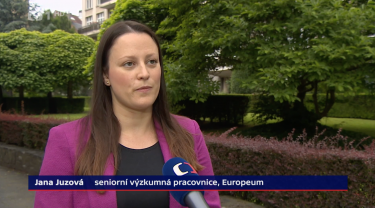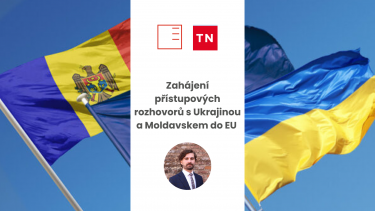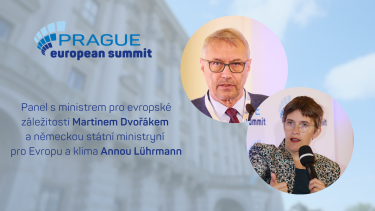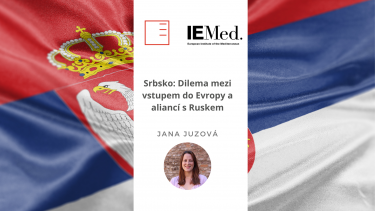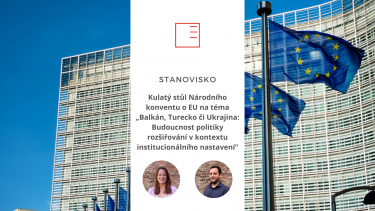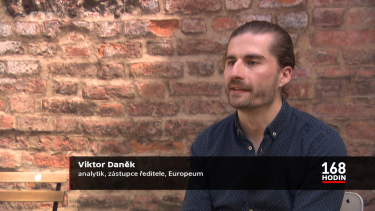Policy Brief | Preparing for EU35+: The View from Central Europe
Despite the historical support of EU enlargement policy by the Visegrad Four (V4), these Central European states are now faced with the challenge of reconciling their stances with the new realities of the process. As Ukraine and Moldova opened their accession negotiations, the EU seems to be torn on the questions associated with the future enlargement(s) - institutional reforms and changes within the EU budget. Transitioning from economic beneficiaries to potential contributors, the V4 states must evaluate the potential political and economic impacts of new members on both the EU and their domestic levels. Writes and proposes recommendations Vladislava Gubalova from GLOBSEC.
Zjistit víceRTVS | EU and Ukraine have concluded a comprehensive security agreement in Brussels
The European Union and Ukraine concluded a comprehensive security agreement in Brussels. This builds upon the EU's longstanding support for Ukraine. What did the politicians agree upon? What is new in the new treaty? Žiga Faktor, Deputy Director and Head of the Brussels Office at the EUROPEUM Institute, commented for the Slovak RTVS.
Zjistit více
RTVS | EU Enlargement: Initiation of Accession Negotiations with Ukraine and Moldova
The European Union has initiated accession negotiations with Ukraine and Moldova. What does this mean for its inhabitants? How do the accession talks proceed? And what must the countries fulfill? Jana Juzová, a senior researcher at EUROPEUM Institute, comments for Slovak RTVS Television.
Zjistit víceUdálosti ČT | Accession talks between Ukraine and Moldova and the EU
The European Union has initiated accession talks with Ukraine and Moldova. This decision was preceded by two years of negotiations. The accession process is expected to take several years. Jana Juzová, a senior researcher at the EUROPEUM Institute, commented on the topic for Evening News on Czech Television.
Zjistit víceTN.cz | Ukraine and Moldova begin EU membership talks
In Luxembourg, formal accession negotiations with Ukraine and Moldova to the European Union have begun. Is this a significant progress towards their eventual EU membership? Which of these two countries has a stronger position? And how does the screening process unfold? Viktor Daněk, Deputy Director of EUROPEUM Institute, discussed these topics for TN.cz.
Zjistit vícePES 2024 | The EU must cooperate not only militarily, but also to defend itself against cyber attacks from Russia, said Minister Dvořák at the conference
The second day of the Prague European Summit 2024 conference at the Czernin Palace was opened with a speech by Czech Minister for European Affairs Martin Dvořák. He thinks of the enlargement of the European Union as crucial. "We have to realize that the enlargement of the EU, our defense and security and the current Central European position are interconnected," he said.
Zjistit víceIEMED | Serbia: The Dilemma between European Accession and Alliance with Russia
With Ukraine’s defence against Russia heading toward a stalemate in the second half of the year and increased pressure inside the EU to deliver on its promises to provide the country with needed financial and military support, Serbia’s ambiguous relationship with Russia and the West has been brought increasingly into the spotlight in 2023. The Serbian Progressive Party (SNS), ruling since 2012, and President Aleksandar Vučić have been responsible for continued democratic backsliding and have failed to align with the Union’s foreign policy during Serbia’s lengthy EU accession process, pushing the situation closer towards a tipping point in Serbia-EU relations. Senior researcher at EUROPEUM Institute, Jana Juzová, describes this in more detail in her article for the European Institute of the Mediterranean.
Zjistit víceIEMED | Srbsko: Dilema mezi vstupem do Evropy a aliancí s Ruskem
Ukrajinská obrana proti Rusku se v druhé polovině roku blíží patové situaci a tlak uvnitř EU na splnění slibů o poskytnutí finanční a vojenské podpory Ukrajině se zvyšuje. V roce 2023 se tak stále více dostává do popředí nejednoznačný vztah Srbska s Ruskem a Západem. Srbská pokroková strana (SNS), vládnoucí od roku 2012, a prezident Aleksandar Vučić jsou zodpovědní za pokračující demokratický úpadek a nesoulad se zahraniční politikou Unie během dlouhého procesu přistoupení Srbska k EU, což situaci posouvá blíže k bodu zlomu ve vztazích mezi Srbskem a EU. Více popisuje seniorní výzkumnice Institutu EUROPEUM, Jana Juzová, ve svém článku pro European Institute of the Mediterranean.
Zjistit vícePosition | National Convention Round Table on the EU
How to improve the EU enlargement process? How to ensure that the democratising effect of the accession process is sustained beyond the eventual accession to the EU? And are EU institutional reforms a necessary condition for EU enlargement? Answers to these and other questions are offered by the EUROPEUM Institute for European Policy's contribution to the National Convention on the EU's roundtable on Balkans, Turkey or Ukraine: the future of enlargement policy in the context of institutional settings.
Zjistit více
168 hodin | EU yes, euro no
Czech public is afraid of the European currency and politicians listen to their voters. Businesses are calling for the euro the most. Czech crown is disadvantageous for businesses, they lose millions every year due to the constant conversion between the currencies and expensive loans in crowns. But now they have a strong ally. Czech president Petr Pavel has called for accepting euro, as we once pledged to do, on the anniversary of the Czech accession to the EU. But will it be enough? What is the mood in society? Viktor Daněk, deputy director of EUROPEUM Institute, comments on the situation for Czech TV's investigative programme 168 hodin.
Zjistit víceStaroměstské náměstí 4/1
Praha 1 - Staré Město
110 00
tel.: +420 212 246 552
email: europeum@europeum.org
https://www.europeum.org
